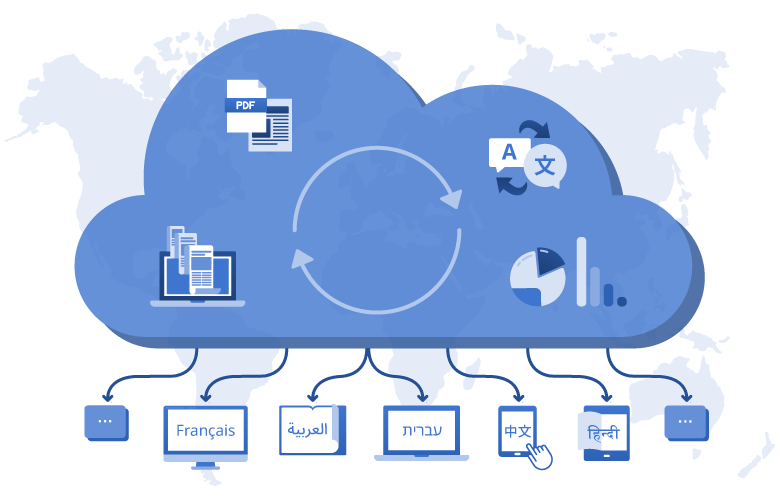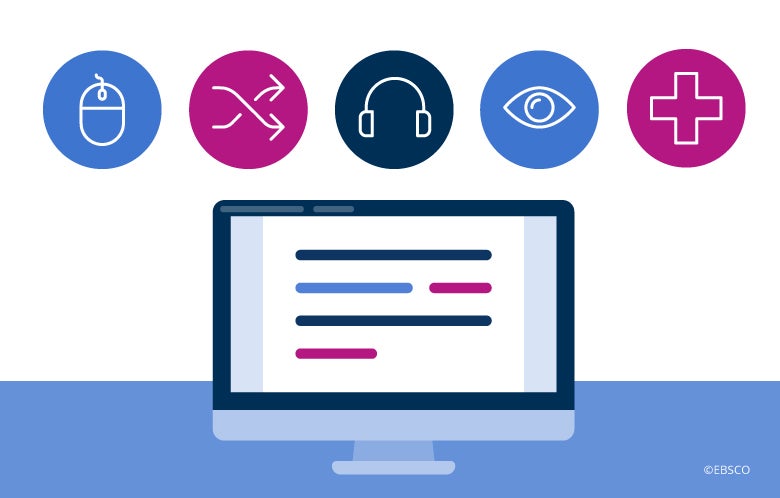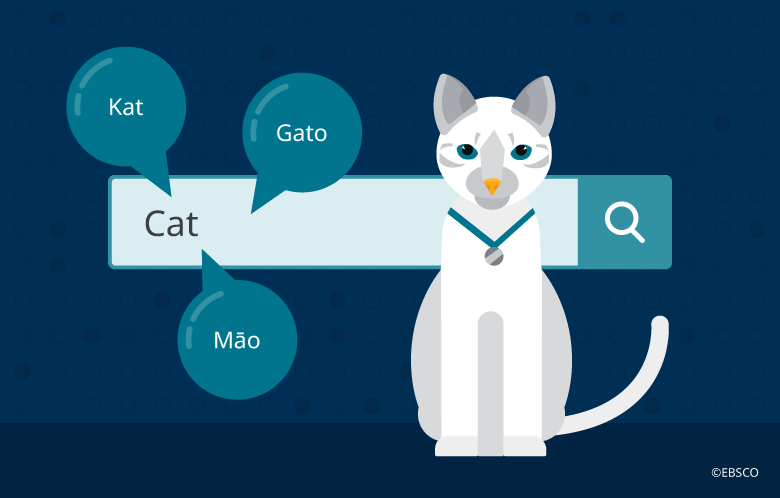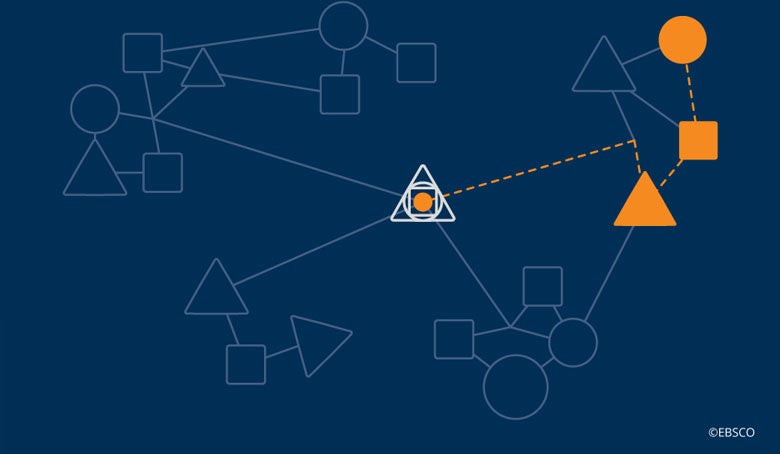Two billion! That’s how many academic searches EBSCO processes, on average, every year. 25% of these queries are international. In the five minutes it will take you to read this blog piece, nearly 20,000 searches will have run through EBSCOhost, worldwide.
In defining what it truly means to be global at EBSCO, we literally put ourselves in the shoes of our users, via all the touchpoints they engage with our products, across devices. Globalization for us happens through the rigorous application of a framework that stands on four key pillars (Globalization, Internationalization, Localization and Translation), in harmonious tandem with Accessibility.
In truly fulfilling our mission to “transform lives by providing relevant and reliable information when, where, and how people need it”, EBSCO is shattering inequities that appear in the form of language, culture, and ability barriers. We endeavor to deliver universally accessible digital experiences. In the process, we carefully balance the need for consistency in experience with the markets’ demands for regionalization/personalization. For us, Globalization (a.k.a.: Universal Accessibility) is a means by which we live up to our core mission; that is to bring information to people where they need it when they need it, and how they need it. We consistently endeavor to do so beyond the boundaries of language and traditional abilities. Thus, Globalization is tied to and feeds directly into our Diversity, Equity and Inclusion (DEI) commitment.
User research is a critical aspect in our product development process. For this we utilize different resources and methodologies.
User research is a critical aspect in our product development process. For this we utilize different resources and methodologies.
Advancing Research Quality, Impact & Reach
All search is local, first. There are over 7,100 languages spoken around the world. Only 33 of them (less than half-a-percent) are deemed to be “thriving”; which equates to “full” digital support. While the United Nations has settled on six of them for international relations, vast disparities still exist, in the way of digital equity. In playing our part, EBSCO removes linguistic and cultural barriers to knowledge and education, ensuring anyone, anywhere, can access our user interfaces, query our databases, and consume our localized content, without envy (or detriment) to the English-Only/American user.
As Lidiette Quesada, EBSCO Information Services’ VP of Sales for Latin America and the Caribbean, puts it: “User research is a critical aspect in our product development process. For this we utilize different resources and methodologies. Our sales representatives constantly meet with librarians throughout the region to learn from them about their information needs. This feedback is systematically collected by our development teams. In addition to this, we have regional advisory boards constituted by thought leaders and focus groups with whom we engage in deeper conversations on how to ensure our products best respond to their needs”. She goes on to add: “EBSCO also uses state of the art technology to optimize the way users interact with our platforms and inform our decision-making process as well.”
Keys to Global Reach
Our commitment to DEI also manifests in how we achieve global reach through our products, while maintaining local resonance in the experiences we deliver. We apply this, starting right at home, within the American borders. This matters to us because nearly one in every five Americans surveyed in 2021 spoke a language other than English at home. U.S. Libraries and Archives are plagued by pervasive language barriers. Non-English patrons are often unable to access or retrieve information or records of any nature, because they are only availed in English, even in highly diverse communities. Consider that, across the globe, institutions of various statures yearn for a cross-language medical information retrieval system, to help non-English-speaking medical students transcend language barriers and find useful and reliable medical information. This systemic status quo naturally also hinders global perspective and knowledge expansion or sharing.
In this respect, Meghan Tylec, VP International Marketing at EBSCO Information Services, comments: “With EBSCO’s international reach, we can help more people achieve access to information when and where they need it. Being a part of the global library community gives us the opportunity to learn and grow more as a business, but also gives our teams a greater understanding of different cultures and lifestyles.”
Accordingly, driven by strategic market insights derived from a sound mix of Voice of the Customer and International User Research Methodologies, our teams give judicious thought to which languages we support, ever-conscious of optimal interface usability, content quality and time-to-market. As a result, just last year, EBSCO released an innovative feature, in the form of on-demand translation for online (HTML) Full Text, making it possible for end-users to instantaneously translate online full text articles otherwise not available in their language. This landmark feature supports 116 locales—that is, by definition, languages as spoken in their various flavors, in different countries/regions (e.g.: French as spoken in Canada instead of France).
In executing our evermore ambitious roadmap, aimed at expanding and accelerating our delivery of Information Services and Products with optimal international usability, we aim to support 12 additional locales, boosting our interface translation capabilities, in mid-2023. We’re also constantly attuned to evolving customer needs. So, if your academic students/library patrons require a particular locale, you can reach out to our Globalization Team, at global@ebsco.com.



